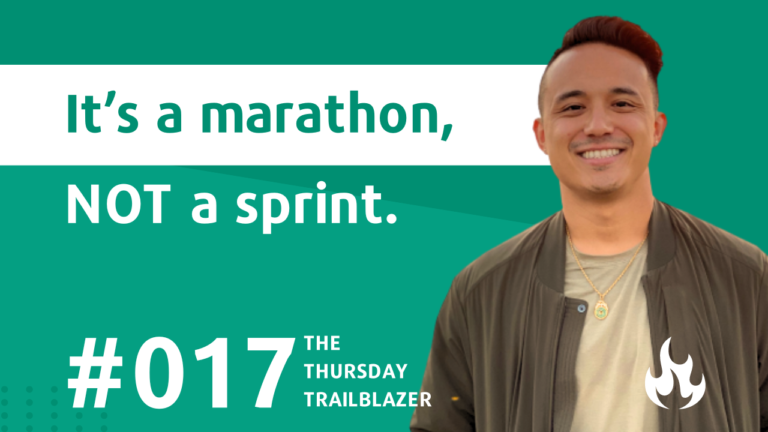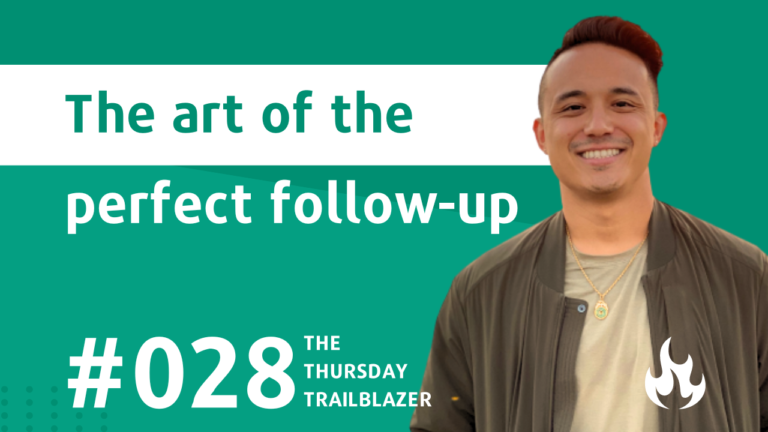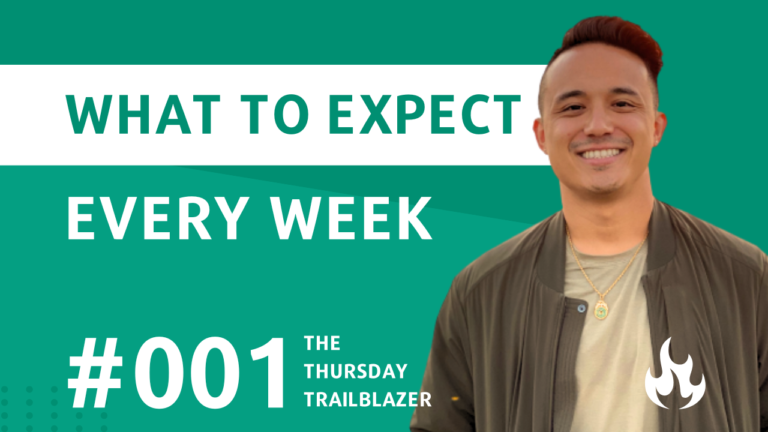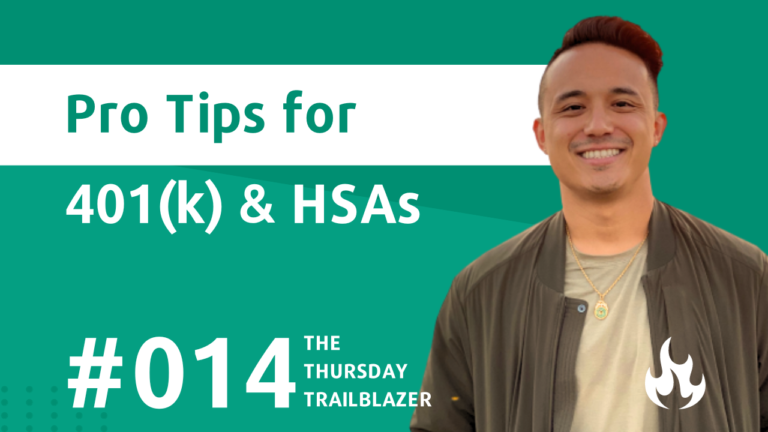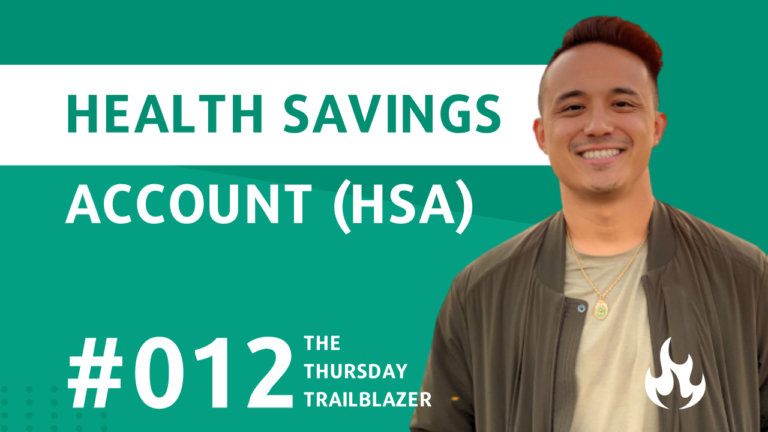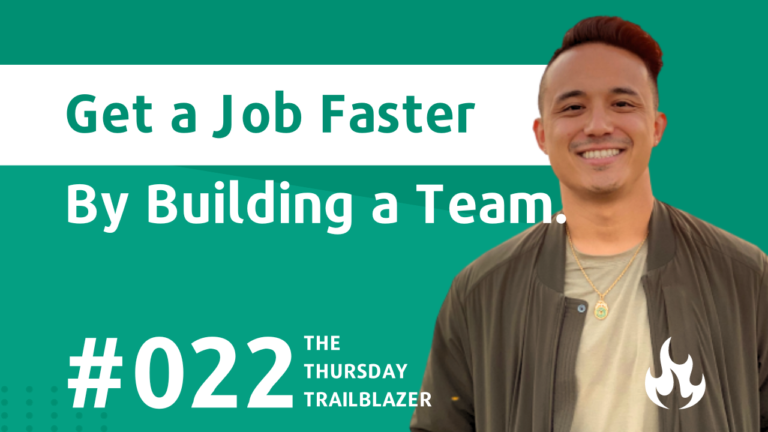T3 #027: 9 Things To Do In An Interview
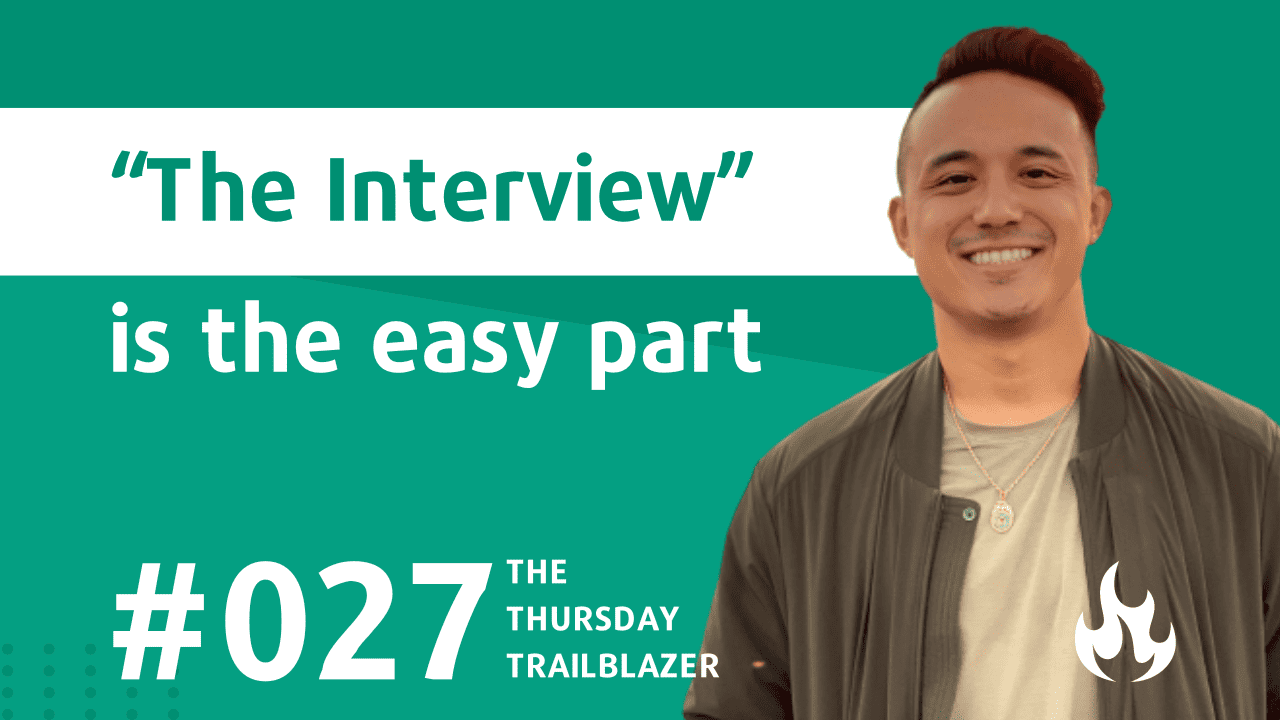
(This is a special series of my newsletter – the twelfth in a series of posts sharing insights, tips, and actions that you can implement when you are searching for a job either to leave your current one, or due to a recent layoff. The principles in the following series can be largely applied to both situations and adapted to your specific scenario. Best of luck in your journey!)
We have been trained for an interview to feel like a test.
The preparation.
The stress.
The all-or-nothing game time moment of being drilled with questions. 🤮
That’s all wrong.
It’s a conversation.
Yes, we did talk about how to prepare for an interview previously “like a test”…
…but the actual interview stress is often blown out of proportion.
Over the past couple of months, I have attended a number of weddings.
Each with their own dress codes.
Travel requirements.
And attendee list that, let’s be honest, determines how I’ll conduct myself.
Each of those aspects seem so second nature to us…
…but that’s exactly the same process when prepping for an interview.
9 Things To Do In An Interview
Select the Appropriate Attire
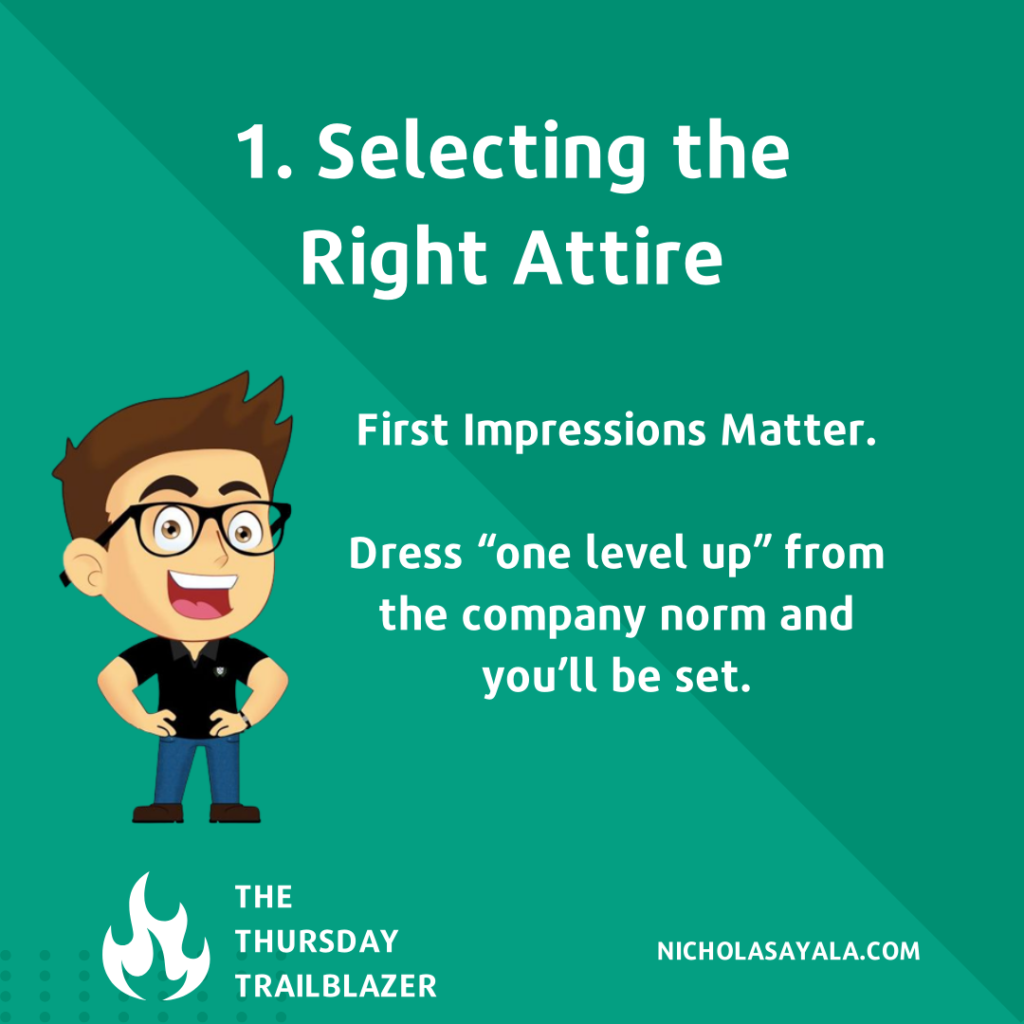
Walking into a law firm with flip flops and t-shirt may not be the most appropriate…
…but could be perfect if you were interviewing for a surf shop.
Regardless if it’s remote or in person – what you wear matters.
After interviewing hundreds of people, I noticed the largest gap has been with remote jobs.
My general rule of thumb is to dress “one level up” than the every day expectation.
What does that mean?
If the team wears t-shirts, I’ll come in a collared shirt.
If the team wears collared shirted, I’ll come in a shirt and tie (no jacket).
If the team wears a dress shirt and jacket, I’m throwing on a tie.
I agree in that what you wear doesn’t directly impact your ability to perform good work…
…it’s going to reflect more-so for cultural alignment.
At the end of the day – it’s all part of the game. 🤷♂️
Being On Time Is Late
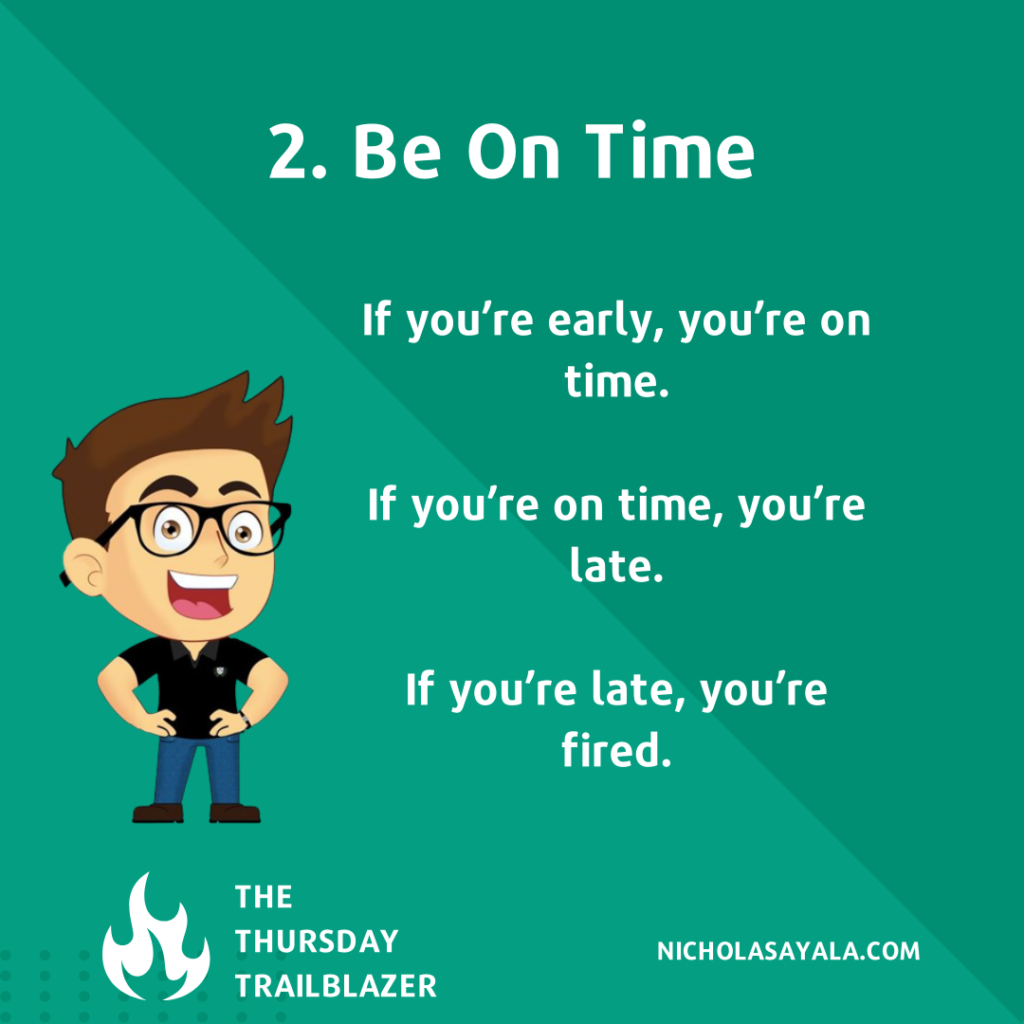
In high school I was part of a business organization called DECA.
There was a saying that we had:
If you’re early, you’re on time. If you’re on time, you’re late. If you’re late, you’re fired.
It’s something that has stuck with me, especially when it comes to appointments.
Regardless if it’s remote or in person, be ready at least 15 minutes early.
This not only allows you some time for something to go wrong…
…but also allows you to gather yourself.
The last thing you want is to join an interview in haste where you are more focused on catching your breathe. 😮💨
If you are having an remote interview, check your tech.
You don’t want to join on-time only to realize you need to spend 5 minutes updating the software.
You’re now 5 minutes late.
This also applies to the devices that you are planning to use.
Make sure they are all set to go.
Test them.
I personally prefer to do my interviews on a laptop with a webcam.
They tend to have less problems…
…and video feed looks significantly more professional.
My mobile phone could work too.
But I found that having a vertical video call feels too casual and can potentially come off unprofessional.
That’s definitely not what I want…
…and this isn’t TikTok. 🕺
Breaking the Stranger Barrier
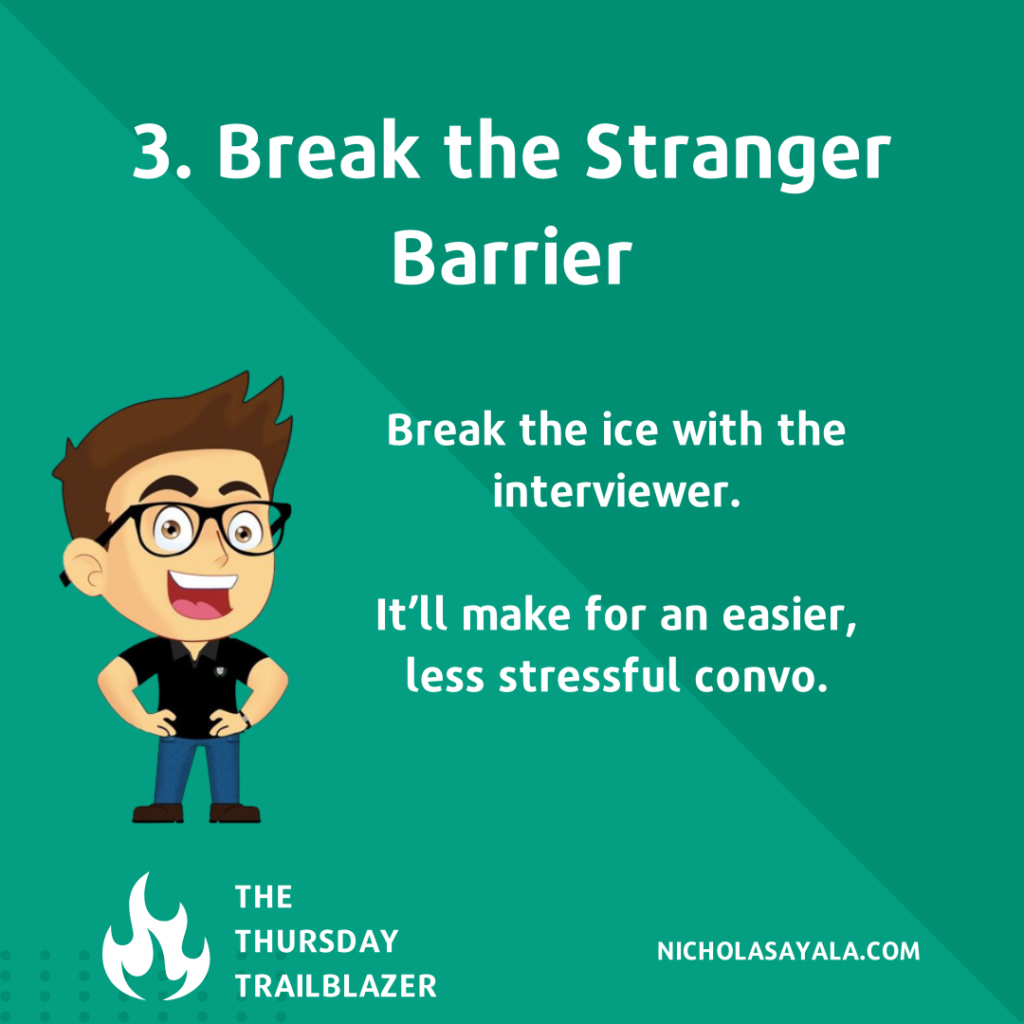
The first 3 minutes of an interview are essential.
It’s going to set the tone for the rest of the interview.
Is it going to be calm and friendly?
Is it going to be strictly professional?
Breaking the ice here is key…
…but it’s not a problem because you’re already prepared. 😉
My approach?
I start the conversation off like a friend that I haven’t seen in a while.
Lighthearted and catching up.
Then we can dive into the interview.
Know Your Resume and LinkedIn Profile
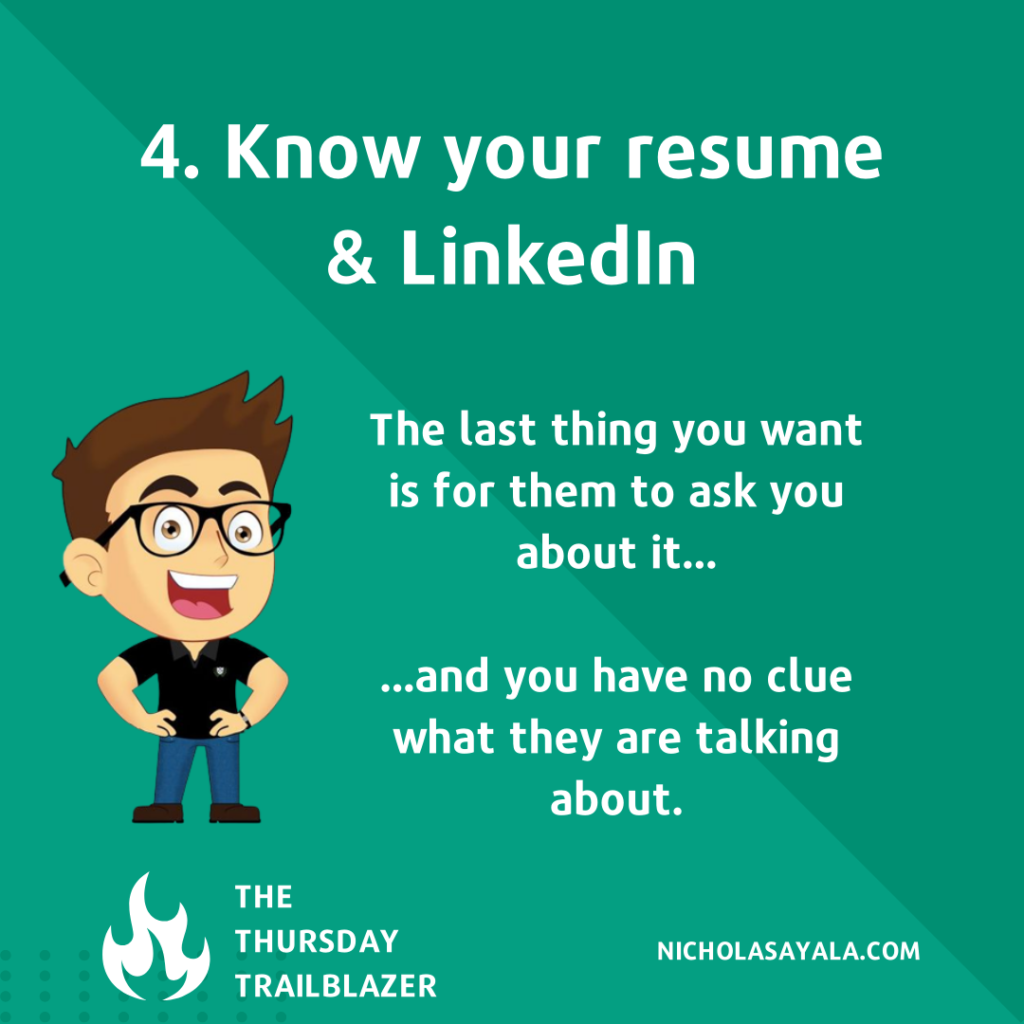
The only thing the interviewer will know about you is going to be what you already provided.
In most cases, that is your resume.
But I have found that some interviewers really prep and have also already reviewed your LinkedIn profile.
So if there is anything that isn’t aligned…
…fix that.
If the interviewer has standard questions, they will ask those.
But I’ve has some interviewers personalize the questions to incorporate things that were in my resume.
You don’t need to memorize your resume.
…but at least know what you included on it so that if someone references it – it’s not a surprise.
Answering Questions with STAR Method Stories
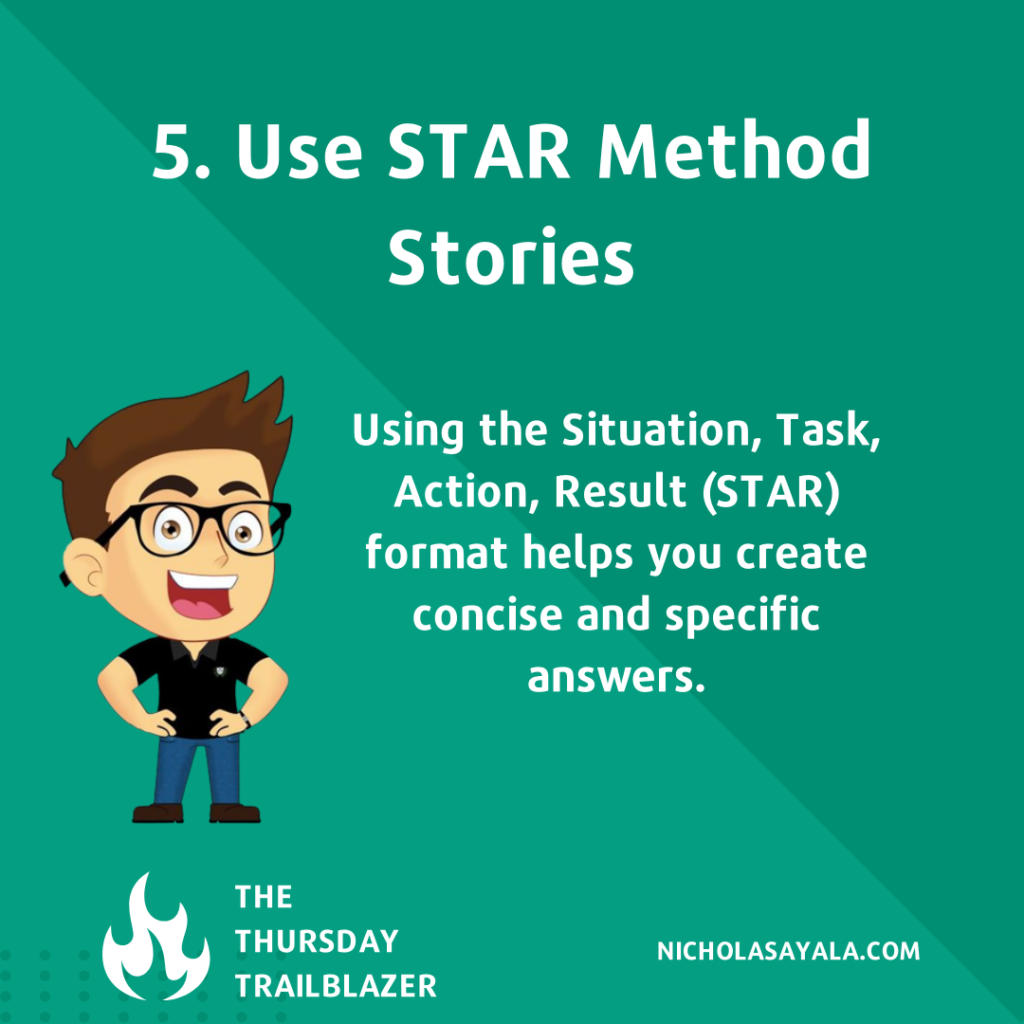
You will be asked questions throughout the interview.
Though there isn’t one right way to answer…
…there is a framework that allows you to be short and concise with how you answer.
It’s a terrible feeling to share a story and at the end the person is confused…
…or even worst lost interest.
We all have those people when they start to tell a story – you already know it’s going to take 10 minutes before they get to the point.
Don’t be that person.
You don’t have time to be that person in an interview.
But you know how to answer these questions because you’ve mastered the art of STAR Method Stories.
Using the Situation, Task, Action, Result (STAR) format is my favorite way to help structure my answers.
The best part is that you don’t need to develop and memorize a bunch of them.
You only need to know 3 to 4 past work situations…
…that you can then tailor to almost any question that is asked.
Understand the Job Description
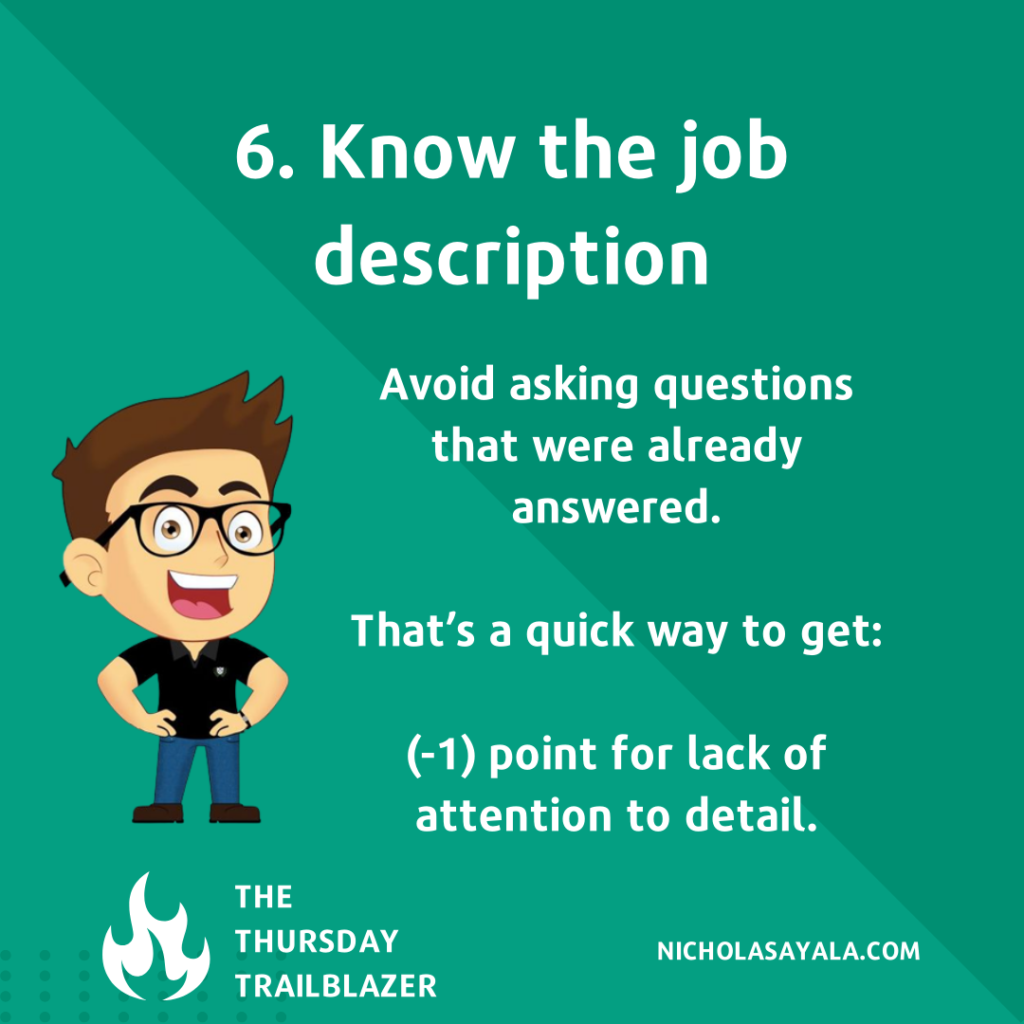
You ever get the feeling that someone doesn’t know what they are talking about?
Or you gave them the answer to the test…
…and they are still getting the answers wrong?
Though most job descriptions are vague…
…some are extremely descriptive and informative.
There have been times that I was interviewing candidates and they were asking me questions that were already in the job description.
The questions weren’t from a place of wanting to learn more…
…but from learning about something for the first time.
Or at least that was the way the question was phrased.
(-1) point for lack of attention to detail.
Read the job description for any clues that can be helpful for questions that you should…
…or shouldn’t ask.
Interviewers Going Off Script
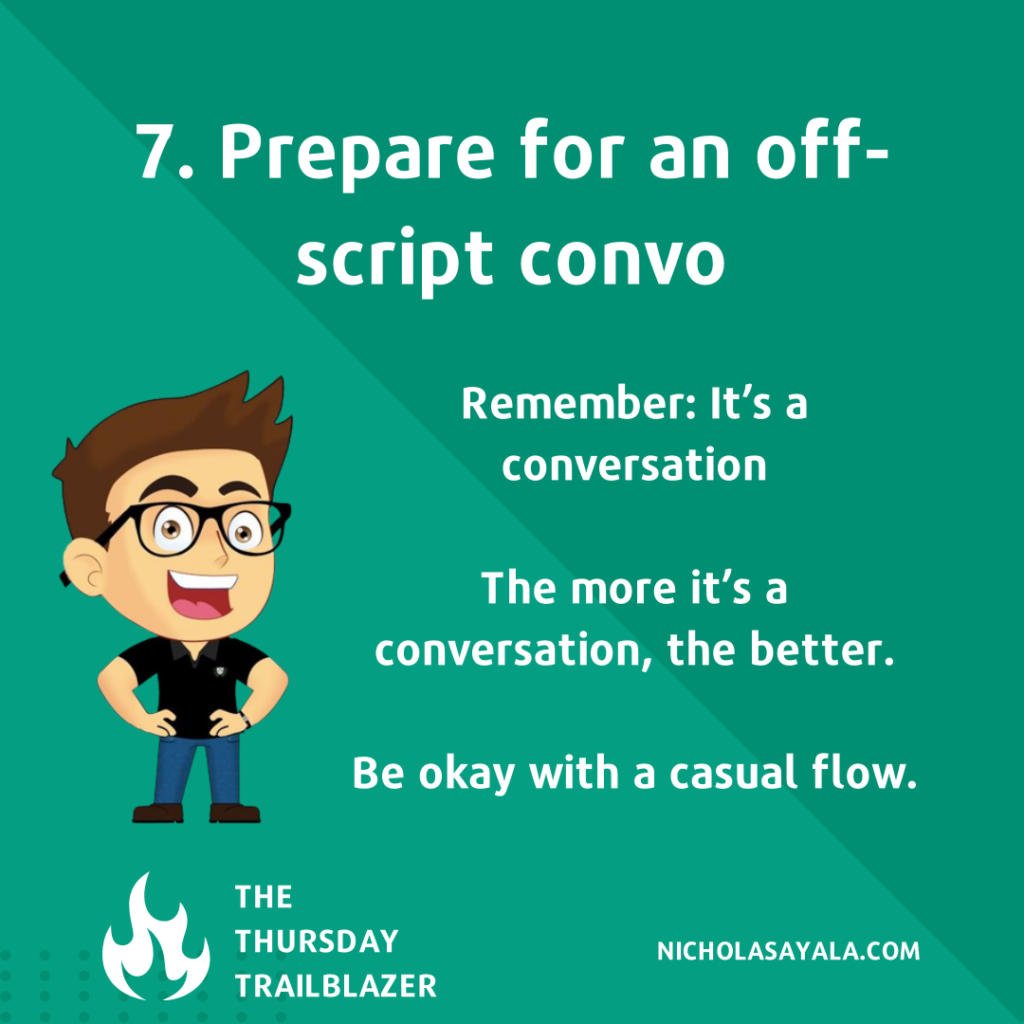
Interviewers will ask questions you may not expect…
…well at least it’ll feel that way.
Remember: it’s a conversation.
Yes, there are times where there are some questions that were given to them.
But that isn’t always the case.
And if it is, there will be some flexibility on how long they will spend going through it.
I’ve been in interviews that we spent the entire time getting to know each other.
We naturally learned about each others’ pasts experiences and personal passions.
The conversation was great!
Towards the last 5 minutes of the interview – we needed to rush through the “mandatory” questions.
So we did.
Going through the questions was a procedural checklist…
…not the driver of the conversations.
That is the goal of a great interview.
The Interviewee Becomes the Interviewer
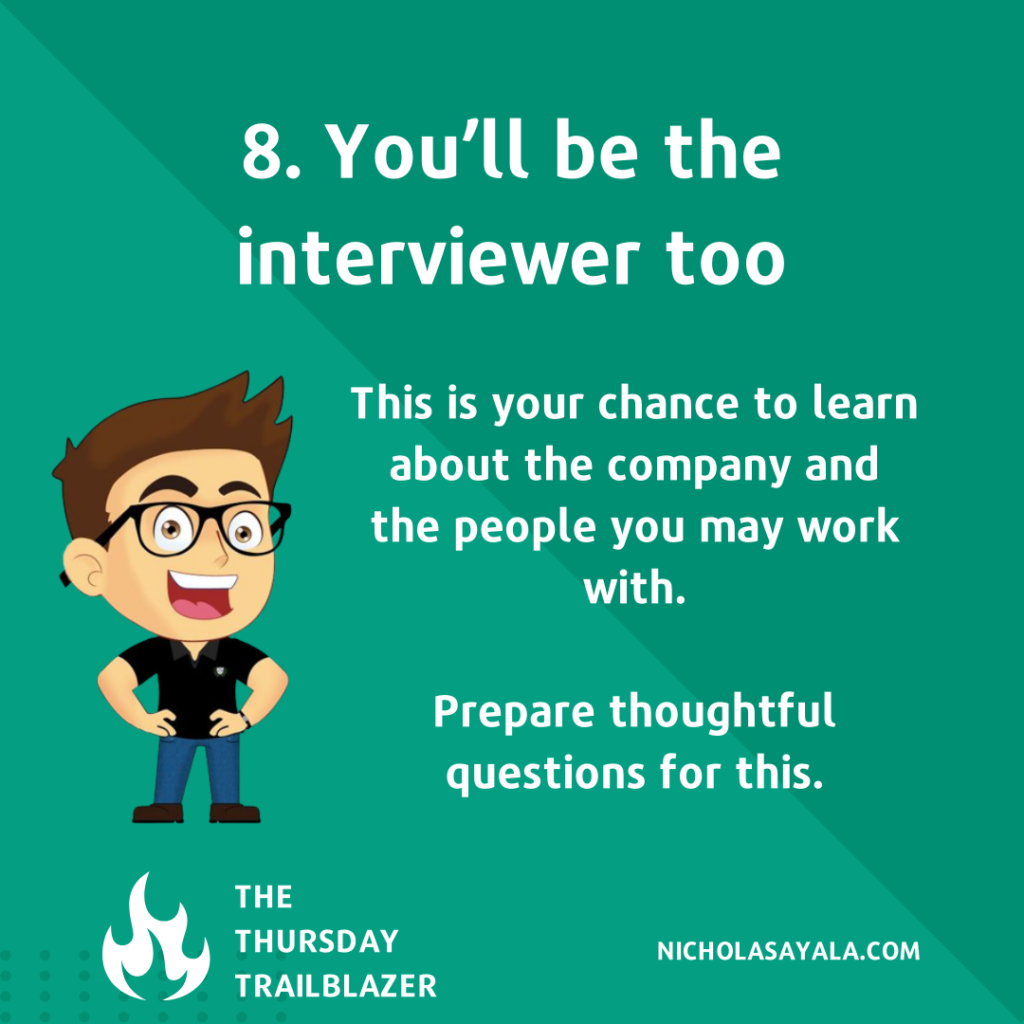
Remember when I said this is a conversation between two people?
That means that you will be able to learn from the interviewer as well.
You want to make sure that this role, team, and company is a good fit for you too!
At the 30,000 foot level, I am looking to learn about the culture and values of the company.
Should I expect to work late into the night and on weekends?
How are decisions made within the team?
Does the company value innovative approaches or are they looking for someone to follow a set rule of tasks?
For things that you weren’t able to find in the job description or with the recruiter…
…you should look to find out from those that are interviewing you.
Don’t be afraid to ask.
If you are already comfortable with what you know about the company…
…ask your interviewers questions about their own experiences, motivations, and opportunities within the company.
Finding out their why for being there can be just as insightful as learning about what projects they are hiring for.
Additional Information to Know
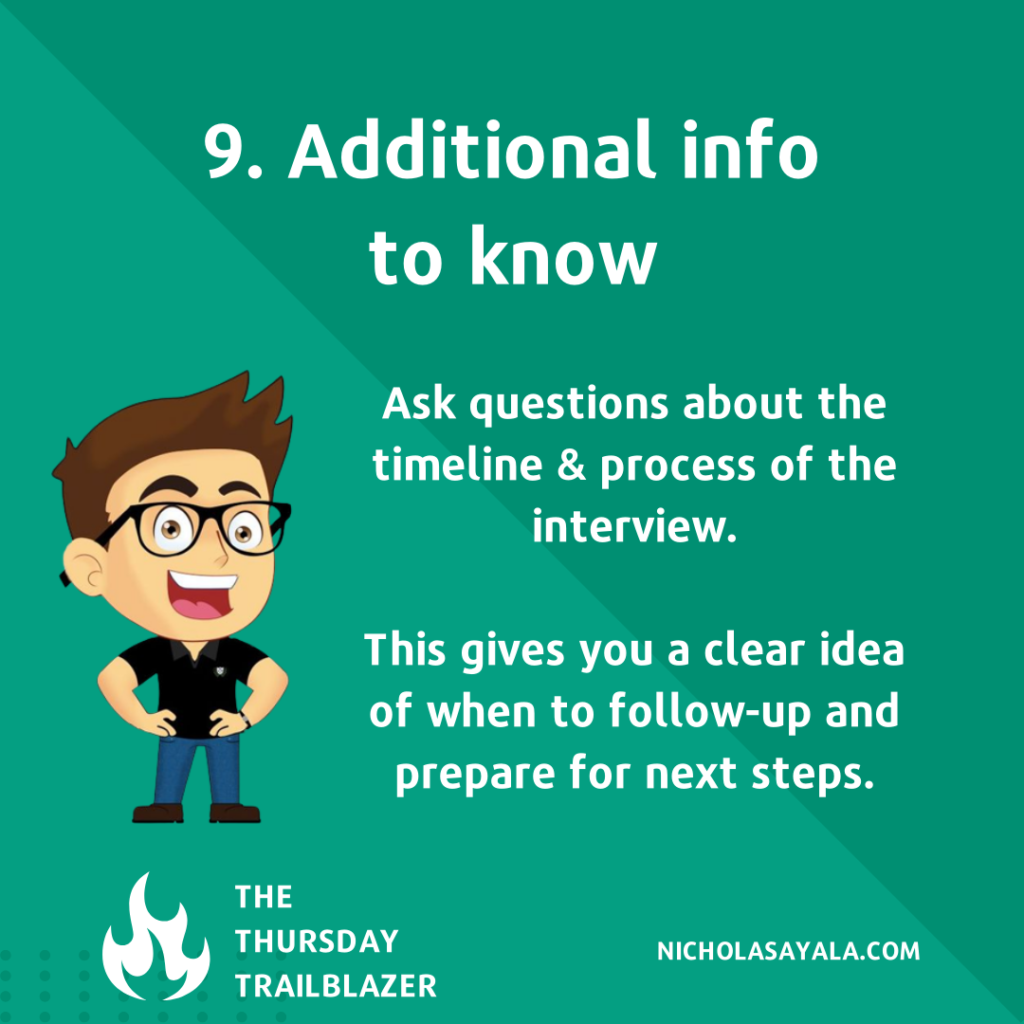
Knowing what are the next steps in the interview process is essential…
…especially towards the beginning of the process.
How many interview conversations or take home assignments should you expect?
What is the timeline they are looking to fill this role?
What is the expected compensation range for this role?
These are usually the first questions I’ll ask the initial recruiter or the hiring manager if they are facilitating the hiring process.
Knowing the timeline and process is helpful so that I knew when to follow-up…
…or set my own expectations of how fast they want to go.
Especially when I have other opportunities in the pipeline.
The fastest time I was ever hired was within two weeks…
…from first email to final offer.
During those two weeks I had three remote video interviews and flew into their headquarters for an onsite interview super day.
They moved quick…
…but I was ready for it.
Hot take: Ask about the compensation range with your initial recruiter call.
A lot of people are torn on this because it can be so taboo.
But I take a very different approach.
The conversation will happen eventually.
And the worst situation is spend all the time going through the process…
…only to find out that the compensation is far below what you’ll accept.
You can save yourself a ton of time if you ask upfront.
There is a slight exception of when to stay in the process…
…and that is if you are looking to use it for practice.
As they say, practice makes perfect.
And that applies even if interviews.
💡 Action Steps
A 30-minute action plan to make sure you are ready during your interview.
🤓 Review your resume (5 minutes). Everything on your resume and LinkedIn profile is available for an interviewer to ask you to elaborate on. Make sure you know what’s on it so you aren’t surprised when you are asked to elaborate.
📝 Practice your STAR Method Stories (15 mins). Know which 3-4 stories you’ll tailor to whatever interview questions are asked about your past experiences. Preferably said using the STAR Method Stories to make sure you are short and concise.
💬 Determine what you want to know (7 mins). Reflect on the information you want to learn about the company or your future coworkers. I’ve found that having unique questions, that sometimes they may have not been asked before, is a great way to standout.
🧑💻 [Remote] Confirm your home setup is ready (3 minutes). To make the best first impression, review the following:
- Do you need to download or update the video calling software (Zoom, Microsoft Teams, WebEx, Bluejeans, etc.)
- Do you have stable, high-speed internet?
- Do you have a space with a quiet, professional looking background? (Hint: use the background blur option to hide a message room)
Remember: It’s your moment to shine, so step into it with confidence and clarity.
You’ve got this! 💪
📚 Other Notable Resources
- Last Week’s Post: How to Prepare and Ace an Interview in 4 Easy Steps
- Read the Full Guide: The ultimate 5-step guide how to get job interviews and job offers after being laid off
- Articles Mentioned: How to Answer Interview Questions – Create Amazing Stories
- Free Resource: Resume Templates
- Free Resource: Teal’s Job Application Tracker
Note: I only promote brands and products I know and trust – and as a Teal affiliate, I may earn a commission (at no cost to you) if you sign up with my link.
Learn the tactics we should have learned in school without the trail-and-error.
Join me and 67+ subscribers to The Thursday Trailblazer. Every Thursday morning, you’ll receive 1 step-by-step insight to help you level up in the areas of personal finance or career development.

